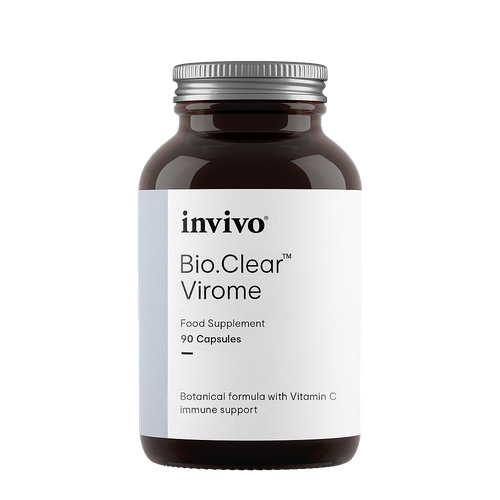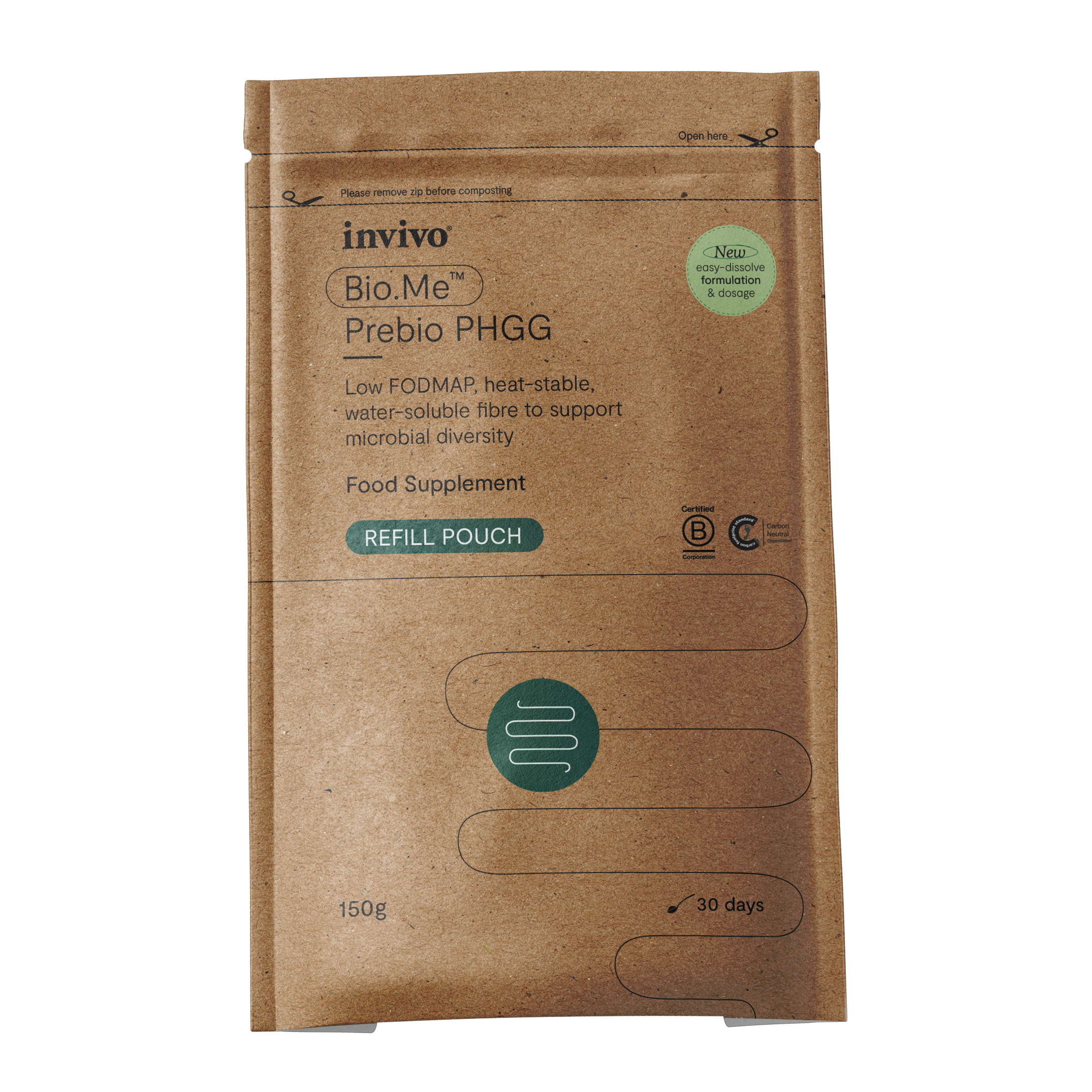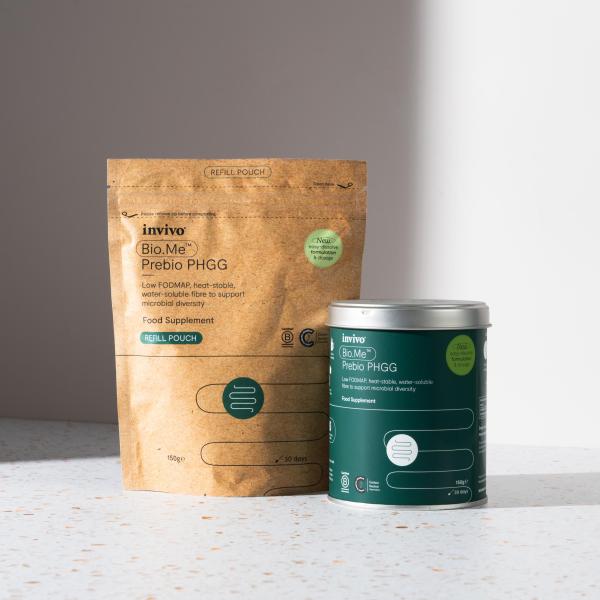It is reassuring to see that general awareness of the importance of nutrition and lifestyle for a healthy immune system is steadily growing. This was exemplified by the decision of the UK Health Secretary, Matt Hancock, to offer a four-month supply of vitamin D supplements to millions of vulnerable individuals given the wealth of research demonstrating the clinical significance of this nutrient in relation to the COVID-19 pandemic1,2. Zinc3 and vitamin C4 are also receiving well-deserved attention for a similar reason.
For optimal immune function, we must nourish the immune system from the ‘outside-in’ as well as from the ‘inside-out’. The ‘outside-in’ approach involves strengthening the system of barriers, which help to protect us from bacteria, viruses, fungi, and/or parasites, which may be pathogenic, as soon as we are exposed to them. This is largely regulated by the colonies of microbes living within and on us. The ‘inside-out’ approach involves direct enhancement of the inner workings of the innate and adaptive immune system to ensure it is primed for a co-ordinated and appropriate response to a microbial threat. This requires ample nourishment of the body with the nutrients it needs to produce adequate, well-functioning white blood cells. When looking to increase the resilience of the immune system, we need to simultaneously support the immune system in both directions.
Importantly, research is revealing a bi-directional relationship between us, the host, and our microbial residents, not least when it comes to our immune system. For instance, host vitamin D status has been associated with the composition of the gut microbiota5, while the composition of the gut microbiota has been associated with variations in circulating neutrophil, lymphocyte, and monocyte counts6. There is much to learn, but what is clear is that when it comes to supporting the immune system, we must nurture the host-microbiome relationship. This is the intention of the outside-in/inside-out approach.
‘Outside-In’ Immune Support
Our bodies are constantly exposed to a plethora of microbes from the environment, particularly from the air we breathe, the food and drink we consume, the surfaces we touch and the people and animals we come into contact with. To help us adapt to this constant environmental challenge and minimise the chance of infection, our body has evolved a remarkable system of barriers to protect us as early as possible following exposure.
One of our earliest points of contact with a potential pathogen, whether a bacteria, virus, parasite, or fungus, is our mucosal barrier, the layer of mucus which covers the epithelial lining of our oral cavity and gastrointestinal, reproductive, and respiratory tracts. It provides us with a barrier between the immune-provoking contents of the outside world and the large population of immune cells that reside in the cellular lining of these organs. As such, it is our first line of defence against pathogen invasion7,8. This is followed by the epithelial barrier which lies underneath the mucus. This is comprised of cells that should be firmly held together by structures called tight junctions9. The true ‘inside’ of the body is therefore the other side of this epithelial barrier. Our goal is to maintain a healthy cross-talk between our microbial parts and ourself while keeping pathogens on the outside wherever possible before they have a chance to cause an infection. As Benjamin Franklin said, “An ounce of prevention is worth a pound of cure.”
To this end, the integrity of our mucosal and epithelial barriers is a cornerstone of a healthy immune system. However, the integrity of these barriers is all too often compromised due to a damaging combination of host, microbiome, and environmental factors. These include an excessive intake of alcohol10, non-steroid anti-inflammatory drugs (NSAIDs)11, and dietary components such as gluten12, as well as emotional stress13 intensive exercise14, environmental pollutants15, and an overabundance of mucin-degrading bacteria in the gut such as Ruminococcus gnavus and –torques16,17. Once impaired, our mucosal barriers become permeable to microbes, which can then interact with the epithelial barrier and trigger the immune system to mount a defensive inflammatory response. If the immune system is already dysregulated and prone to generating chronic inflammation, which often arises in the case of long-term hyperpermeability of the intestinal mucosal and epithelial barrier (so-called ‘leaky gut’) and gut dysbiosis18,19, obesity20, and low vitamin D21, there might be an increased risk of severe infection. Research indicates that poor health of the oral microbiome and mucosa might increase the risk of infections too, including COVID-1922,23.
The microbiota of our oral cavity, gastrointestinal, reproductive, and respiratory tracts are vital in the upkeep of quality mucosal and epithelial barriers and thus, in maintaining these vital first lines of defence. Short-chain fatty acids (SCFAs), such as butyrate, made by our commensal microbiome provide a dual benefit to the immune system. They both enhance the production of the glycoprotein mucins (specifically MUC2) by the Goblet cells in the epithelial barrier24, as well as support the structural integrity of the underlying epithelial barrier25. Our commensal microbiome can also upregulate the production of other vital components of the mucosal barrier, notably secretory IgA (SIgA)26 and beta-defensins27,28 which assist its defensive function by keeping it gently primed and ready for action. A healthy colony of Bifidobacterium spp. in the gut microbiome is vital for a strong, balanced immune system29, namely through its ability to stimulate the production of butyrate by other colonic bacteria via the process of cross-feeding30, increase host SIgA production31, and balance inflammatory cytokines32.
Good levels of mucins in the mucosal barrier provide a substrate for the growth, adhesion, and protection of the commensal microbes, creating an alliance between us, the host, and the microbial cells living within and on us33. This alliance can have far-reaching consequences for our immunity, not least by regulating the dynamics of our white blood cells as mentioned above and making the respiratory tract more resilient to infection via the emerging ‘gut-lung axis’34. It is therefore fitting that the gut microbiota is being discussed in relation to the current pandemic35,36.
In the meantime, it is our responsibility to be diligent stewards of our microbial residents by providing them with the environment they need to thrive. In turn, they hold immense potential for improving our immune resilience.
How you can support your microbiome:
- An increased intake of prebiotic fibre and polyphenols is a fundamental starting point. A range of prebiotics, including galactoligosaccharides (GOS) and the polyphenols present in aronia berry and pomegranate, can stimulate the growth of commensal bacteria colonies in the gut, including Lactobacilli spp., Bifidobacterium spp., as well as Akkermansia muciniphila which is especially important for the health of the mucosal barrier37.
- When therapeutic support for the intestinal mucosal and/or epithelial barrier is required, an increased intake of probiotic bacteria alongside prebiotics is prudent. Specific strains of probiotic bacteria have been shown to improve gut integrity, such as the Barrier probiotics blend of Lactobacilli and Bifidobacterium strains38. Interestingly, this blend has also been shown to reduce vulnerability to depression39, which might confer additional benefits for the immune system given the connection between poor mental health and risk of infection40. This approach can work well in practice alongside an increased intake of nutrients that support gut integrity, such as vitamin A and D41 and zinc42.
- When SIgA has been shown to be low in a stool test, supplementation with colostrum, a source of SIgA, lactoferrin, and other immune factors, or the probiotic yeast, Saccharomyces boulardii, which can stimulate our ability to make SIgA, can be helpful to further improve immune resilience43,44. Research shows that colostrum can also support intestinal hyperpermeability, conferring additional immune benefits45.
Inside-Out Immune Support
Should a pathogen evade these early lines of defence, we need to make sure that the systemic immune system is ready to mount an appropriate, effective response. A decent oral intake of vitamins and minerals, especially vitamin A, C, D, and zinc, is essential here. There is an extensive body of research showing how instrumental these nutrients are to innate and adaptive immune system function and in reducing the risk of infection. Vitamin A, for example, can confer additional immune benefits by assisting the transport of SIgA into the mucosal barrier47.
A range of botanicals and medicinal mushrooms can be directly immune-supportive too, not least Andrographis (Andrographis paniculata)48, Echinacea (Echinacea purpurea)49, and medicinal mushrooms such as maitake (Grifola frondosa)50. With regards to Andrographis, a review of 33 randomised clinical trials showed significant improvement in coughs and a reduction in sore throats and in overall symptoms and duration of acute upper respiratory tract symptoms51.
Coupling such nutritional and botanical interventions with targeted support for stress management52 and sleep53 can be formative for improving immune resilience.
To help optimise immunity, it is imperative that we nourish the immune system from the outside-in and inside-out with an emphasis on nurturing our relationship with the microbial colonies with which we co-exist. Thankfully, there is much we can do through nutritional and lifestyle medicine to support this.




